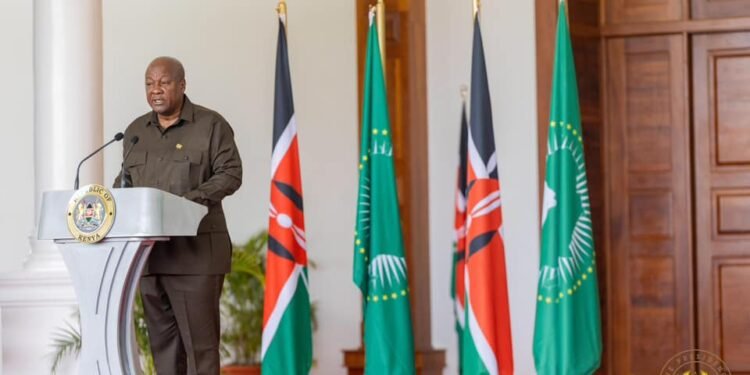Robert Ahomka-Lindsay, a former deputy Minister of Trade and Industry, has called on private sector participation for businesses to gain more from the Africa Continental Free Trade Area (AfCFTA).
According to him, the framework for the free trade will be inconsequential if it fails to rope in businesses to take advantage of the AfCFTA.
Speaking at an event organized by the Private Enterprises Federation, Mr. Ahomka-Lindsay admonished stakeholders to assist businesses to identify the potential impact of the AfCFTA.
Mr. Ahomka-Lindsay further opined that this will help to strategically position businesses in order to fully participate in the free trade.
“It is important for us to make sure that we provide the framework. But at the end of the day, you need a private-sector representation to be the one pushing so that all that is done meets your requirements. We need to move the discussion from these lofty, nice things to the real details. How do I export cocoa butter, for instance?
“That is the level of discussion we must have at the association level guided by PEF and everybody else because Ghanaians are very good at trading, but we don’t have what it takes to have a very good formal trading; that is the path that we need to develop”.
Private sector participation
According to the African Development Bank, full implementation of the AfCFTA will contribute to building Africa’s structural transformation. Subsequently, the bank maintains that it will reshape markets and economies across the region.
It further noted that it is critical that the private sector is effectively engaged in the implementation process. It further revealed that this will be achieved with the active support of governments, the African Union and development partners.
According to the Bank, indications are that the private sector has not been adequately engaged. The process going forward must be more inclusive.
Meanwhile, the President of the Chartered Institute of Supply Chain Management, Richard Obeng Okrah, has disclosed that Supply Chain Management will be key in the implementation of AfCFTA.
Supply Chain relevant to AfCFTA
He revealed that the relevance of the supply chain in ensuring the seamless movement of goods will be crucial to trading.
“A lot of attention and jobs are going to be created for Ghana. And in this respect, supply chain management is a very key component in ensuring that we succeed in our objectives. We are required to move goods from manufacturers to end-users and effective supply chain systems ensure that the planning, transportation, logistics, warehousing and movement to the ultimate consumer is done in a very efficient manner.”
Speaking at his swearing in, Mr. Okrah further revealed that the free trade will equally present the supply chain with great opportunities. This, he explained, will help the industry thrive and remain effective in its dealings.
Likewise, he expressed his optimism over the potential the supply chain management will be opened to. According to Mr. Okrah, the opportunities created will enhance supply systems of supply chains.
“We see a great niche that is being created for the practice of effective and effective supply chain systems and that way, we will be able to connect all the dots and ensure that the objectives of the free trade zone are met”.
Read Also: Ghana-Canada Business Council to improve trade relations























